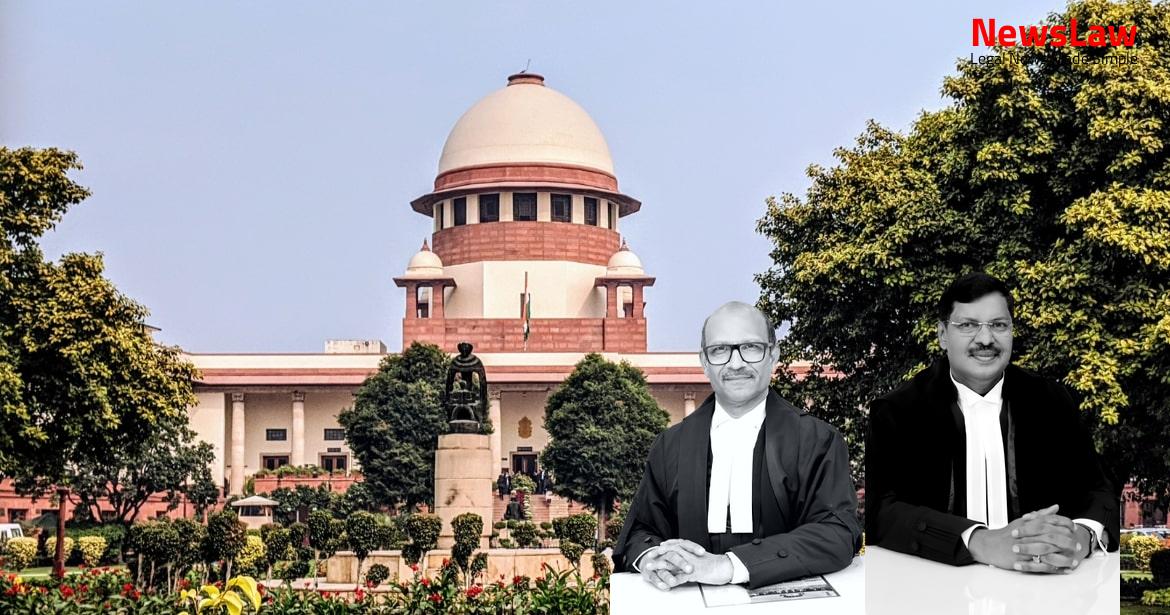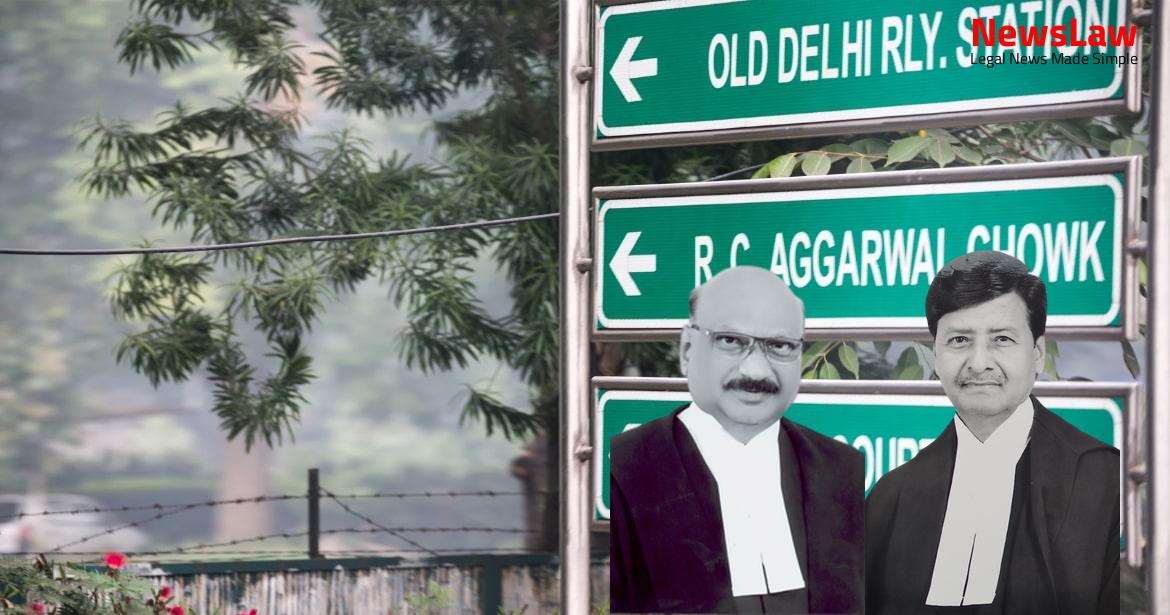In a significant ruling, the Supreme Court of India has delivered a judgement in the case of State of Tamil Nadu v. Detenus, concerning the issuance of a writ of habeas corpus for pre-mature release. The case involves a dispute between the State of Tamil Nadu and the detenus who have filed petitions seeking release under a Government Scheme. Stay tuned for a detailed analysis of the verdict.
Facts
- In all cases, petitions were filed by the petitioners a few months prior to filing petitions in the High Court seeking release under G.O.(Ms) No. 64 dated 01.02.2018.
- G.O.(Ms) No. 64 dated 01.02.2018 was issued by the Governor of Tamil Nadu under Article 161 of the Indian Constitution, establishing a Scheme for considering pre-mature release of convicted prisoners on M.G. Ramachandran’s Birth Centenary.
- The Scheme included the formation of State and District committees to review prisoner cases and make recommendations for pre-mature release.
- The Scheme also outlined specific eligibility criteria for prisoners to benefit from the pre-mature release, excluding certain offences or Acts from eligibility.
- The High Court of Madras granted the petitions for habeas corpus, ordering the release of detenus based on G.O.(Ms) No. 64 dated 01.02.2018 unless their presence was required in another case.
- The detenus in the current cases, convicted for various offenses including Section 302 of the Indian Penal Code, filed petitions for habeas corpus alleging that they were not granted the premature release benefit despite others receiving it.
- The detenu has been denied the benefit of release due to danger to his life as mentioned in the Probation Officer’s report.
- The High Court believed the detenu could not be denied release solely because of the threat to his life.
- The High Court directed that the detenu be informed about the danger to his life upon release.
- There were pending representations concerning these cases, but the High Court consistently ruled that the convict prisoners were entitled to release under G.O.(Ms). No.64, Home [Prison- IV] Department dated 01.02.2018.
- All convicts had been sentenced to life imprisonment, and their convictions had been upheld by the Court.
Also Read: DHFL Moratorium: Depositor Rights & RBI Intervention
Issue
- The main issue is whether a writ of habeas corpus would lie for securing the release of a person undergoing a sentence of imprisonment imposed by a court, based on Government orders/rules for premature release of prisoners.
- The second issue initially framed has been found unnecessary for this case and has been excluded from consideration.
- The first issue has been rephrased for clarity in decision-making.
Also Read: State of Karnataka v. [Respondent]
Arguments
- The State argues that the High Court overstepped its jurisdiction under Article 226 while issuing the writ of habeas corpus.
- The State contends that the detenus were convicted of murder, and their detention was legal as upheld by the courts.
- It is argued that the High Court should not have directed the release of detenus but should have only considered their cases under G.O. No.64 dated 01.02.2018.
- The State points out that the High Court selectively challenges only a few orders out of the many passed in similar circumstances.
- The senior counsel for the detenus argues that the writs of this nature must be specifically labeled as habeas corpus writs under the Rules of the High Court of Madras for them to be entertained.
- Referring to Rules 11, 12, and 13 of the Rules, it is emphasized that the mention of specific details and not challenging the detention order is essential for the writ to be considered.
- The power of the High Courts to frame rules is subject to the provisions of the Constitution and any relevant laws.
- Therefore, unless the petitioner complies with the specific requirements listed in the Rules, the writ of habeas corpus may not be entertained.
- Senior counsel for detenus argued that the prisoners have been in jail for a long time, eligible for release under normal rules of remission.
- It was pointed out that other detenus in similar situations have already been released.
Also Read: Legal Analysis of Entrance Exam Regulations in AYUSH Courses
Analysis
- The Court must give reasonable time to address the issue of a detenu’s release.
- A writ of habeas corpus can be issued when detention is without legal authority.
- The High Court cannot directly decide on the release under a specific Scheme.
- The State must decide on representations made by the detenus.
- Reasoned orders must be passed for refusing benefits under the Scheme.
- Challenges to such orders would be in the form of a writ of certiorari.
- The High Court can review and decide on rejections of premature release.
- Detention of life-sentenced individuals cannot be considered illegal.
- Issuance of habeas corpus must be based on unlawful detention.
- The Court should not involve in deciding parole or remission matters.
- Education and courses completed by various detenus during incarceration have been noted.
- Proper consideration of representations of detenus is essential.
- Past practices or lack of challenges do not validate illegal orders.
- Legal issues should be resolved promptly to provide closure for the parties involved.
- The writ of habeas corpus is a processual writ to secure the liberty of a citizen from unlawful or unjustified detention.
- It can be used to seek release from both State detention and private detention.
- The writ may not be granted if the detention is in accordance with a lawful court decision or authority.
- Habeas corpus is a remedy available to all individuals, regardless of their status, against any form of powerful entity.
- The remedy of habeas corpus is available in all cases where a person is deprived of their personal liberty.
- Life imprisonment means imprisonment until the last breath, as established in Gopal Vinayak Godse v. The State of Maharashtra and Others.
- Grant of remission or parole is not a right vested with the prisoner, as stated by Justice Krishna Iyer.
- A writ of habeas corpus is maintainable if the fundamental rights of a prisoner are violated, as established in various judgments.
- In cases like State of Maharashtra and Others v. Tasneem Rizwan Siddiquee, it was observed that a writ of habeas corpus could not be issued if the detenu was in detention pursuant to a court order.
- The Court has the responsibility to ensure that a person, even when in incarceration, is not denied their fundamental rights, as seen in Kanu Sanyal v. District Magistrate, Darjeeling.
- Any deprivation of liberty must be in accordance with established law and procedures.
- The detenu was convicted in a TADA case, but that conviction has been overturned by the Court.
- The TADA conviction cannot be taken into consideration.
- If the State rejects the detenu’s plea, a reasoned order must be passed.
- The detenu has the right to challenge the order before the High Court.
Decision
- Detenus in Criminal Appeal No. 144, 145, 146, and 148 of 2020 are ordered to be released forthwith unless wanted in any other case.
- For the detenu in Criminal Appeal No. 147 of 2020, the State is directed to consider and decide their representation within 6 weeks.
- The appeals mentioned are disposed of as per the above terms.
- The judgment(s) of the High Court are set aside.
- Any pending applications are disposed of.
Case Title: THE HOME SECRETARY (PRISON) Vs. H. NILOFER NISHA (2020 INSC 83)
Case Number: Crl.A. No.-000144-000144 / 2020



